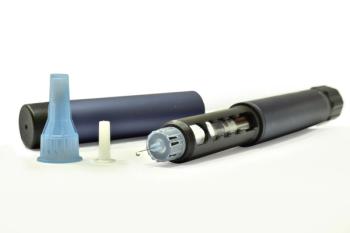
FDA OKs Anifrolumab for Moderate to Severe Systemic Lupus Erythematosus
Anifrolumab (Saphnelo; AstraZeneca) significantly improves disease activity and reduces corticosteroid use in patients with SLE.
The FDA has approved anifrolumab-fnia (Saphnelo; AstraZeneca) for the treatment of adult patients with moderate to severe systemic lupus erythematosus (SLE) who are receiving standard therapy.
The drug is first in its class and the only new drug in over a decade that has been approved for SLE. The FDA decision marks the first regulatory approval for anifrolumab.
SLE is a chronic and complex autoimmune disease characterized by the immune system attacking healthy body tissues. Patients with SLE can experience often debilitating symptoms, including pain, rash, fatigue, swelling in joints and fevers, as well as permanent organ damage, which occurs in approximately 50% of patients. It is the most common form of lupus and affects an estimated 300,000 individuals in the United States, but studies have also shown that SLE disproportionately affects Black, Hispanic, and Asian populations.
Anifrolumab is a type I interferon (type I IFN) receptor antagonist that plays an important role in the pathophysiology of lupus, as increased type I IFN signaling is linked to surges in disease activity and severity.
FDA approval was based on 2 TULIP (Treatment of Uncontrolled Lupus via the Interferon Pathway) phase 3 trials, published in The New England Journal of Medicine and The Lancet Rheumatology, respectfully; and 1 MUSE phase 2 trial, published in Arthritis & Rheumatology. All 3 clinical trials were randomized, double-blinded, placebo-controlled and included patients with moderate to severe SLE who had been receiving standard therapy that included at least one of the following:
- Oral corticosteroids (OCS)
- Antimalarials
- Immunosuppressants, including methotrexate, azathioprine, or mycophenolate mofetil
TULIP-1 and TULIP-2 assessed the safety and efficacy of anifrolumab versus placebo. TULIP-1 included 457 patients randomized 1:2:2 to receive a fixed-dose intravenous (IV) anifrolumab 150 mg, 300 mg, or placebo every 4 weeks. The TULIP-2 trial focused on analyzing the ability of anifrolumab to reduce disease activity. Investigators employed the BILAG-Based Composite Lupus Assessment (BICLA) scale and included 362 patients randomized 1:1 to receive a fixed-dose IV infusion of 300-mg anifrolumab every 4 weeks.
The MUSE phase 2 trial assessed the safety and efficacy of a 2-dose regimen for anifrolumab versus placebo, in which 305 adults were randomized to receive IV anifrolumab 300 mg, 100 mg, or placebo every 4 weeks in conjunction with standard therapy for 48 weeks.
Although TULIP-1 did not meet its primary end point based on the SLE Responder Index 4 (SRI4) composite measure, the TULIP-2 and MUSE trials demonstrated reduced overall disease activity across organ systems, including skin and joints, and a sustained reduction in OCS use, according to investigators.
Common adverse reactions associated with anifrolumab include nasopharyngitis, upper respiratory tract infection, bronchitis, infusion-related reactions, herpes zoster, and cough.
“Today’s landmark approval of SAPHNELO is the culmination of years of AstraZeneca’s pioneering research in the type I interferon pathways, a central driver in systemic lupus erythematosus pathophysiology,” said Mene Pangalos, executive vice president, BioPharmaceuticals R&D. “This ground-breaking medicine has the potential to meaningfully improve the lives of patients living with this often-debilitating disease.”
Reference
- Saphnelo (anifrolumab) approved in the US for moderate to severe systemic lupus erythematosus. News Release. AstraZeneca; August 2, 2021. Accessed August 2, 2021. https://www.astrazeneca-us.com/media/press-releases/2021/saphnelo--anifrolumab--approved-in-the-us-for-moderate-to-severe.html.
Newsletter
Pharmacy practice is always changing. Stay ahead of the curve with the Drug Topics newsletter and get the latest drug information, industry trends, and patient care tips.























